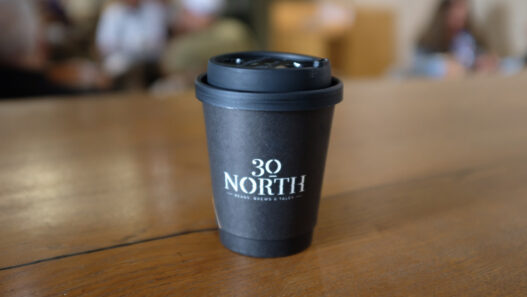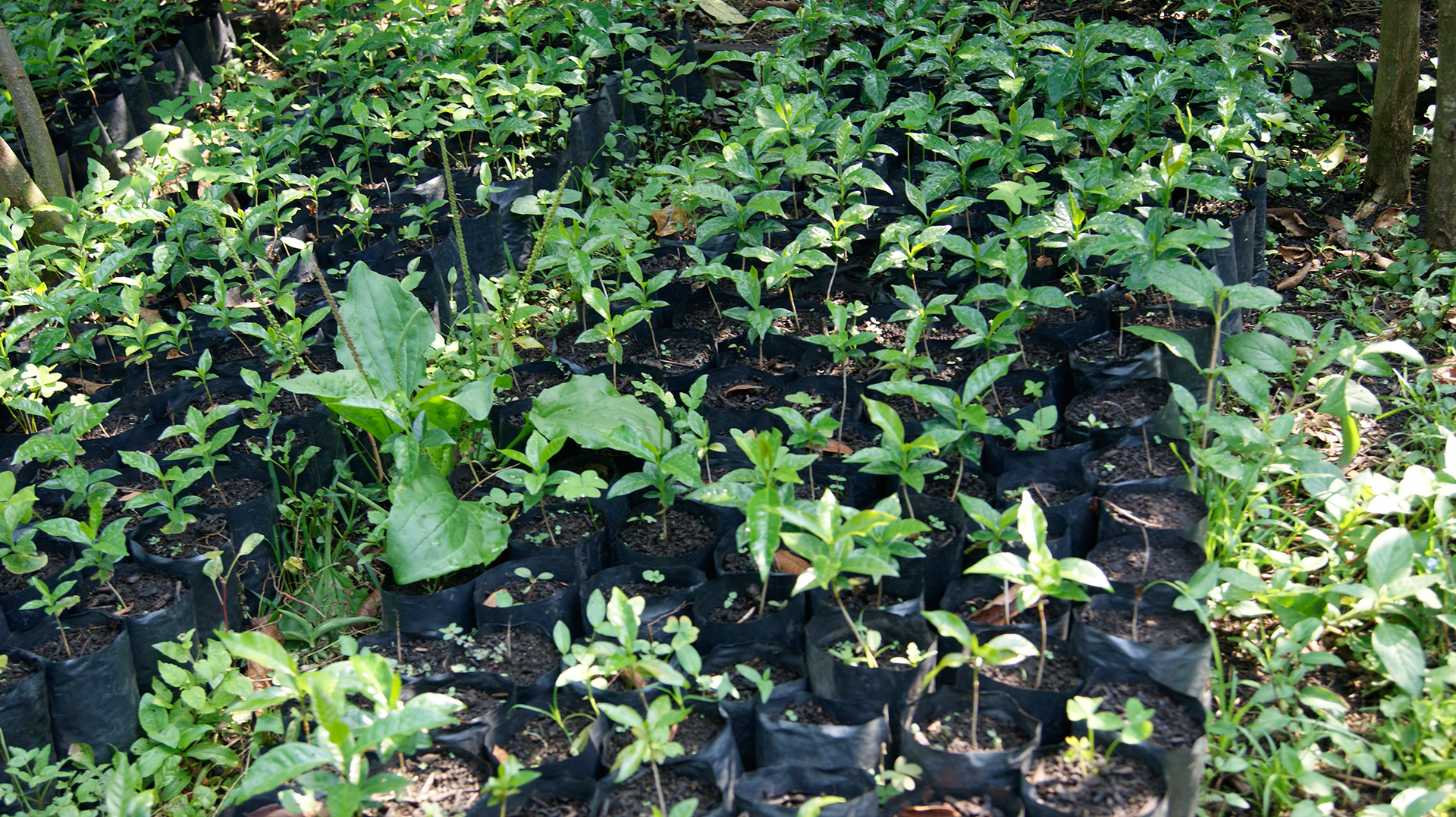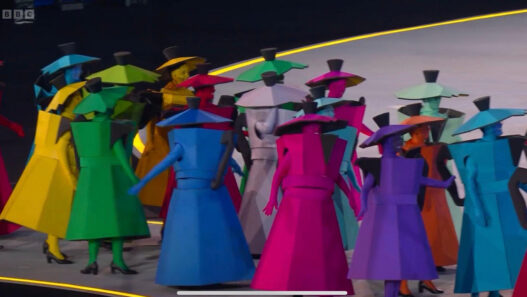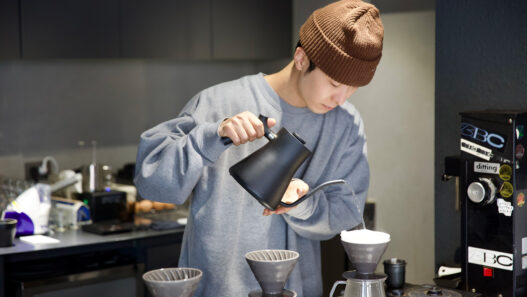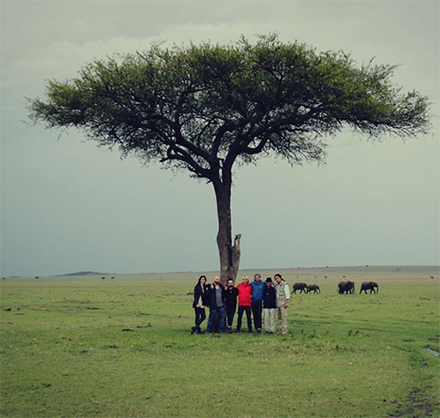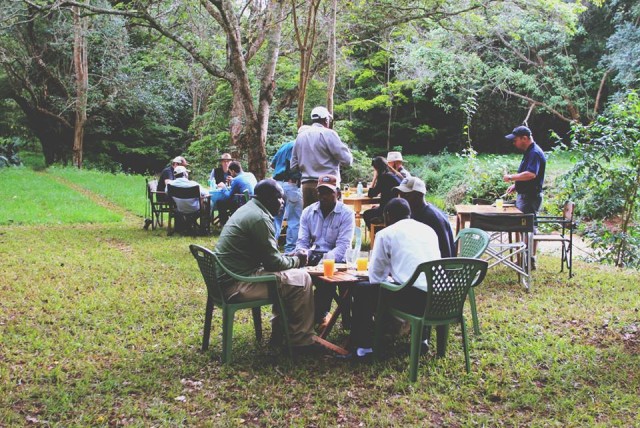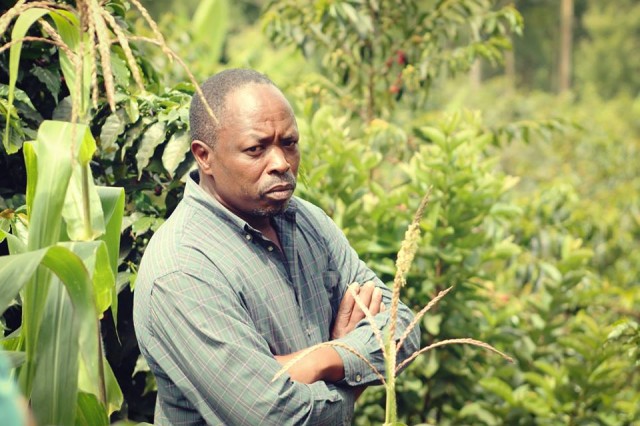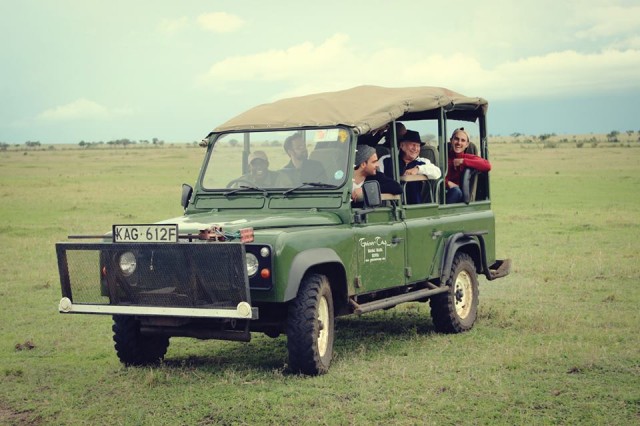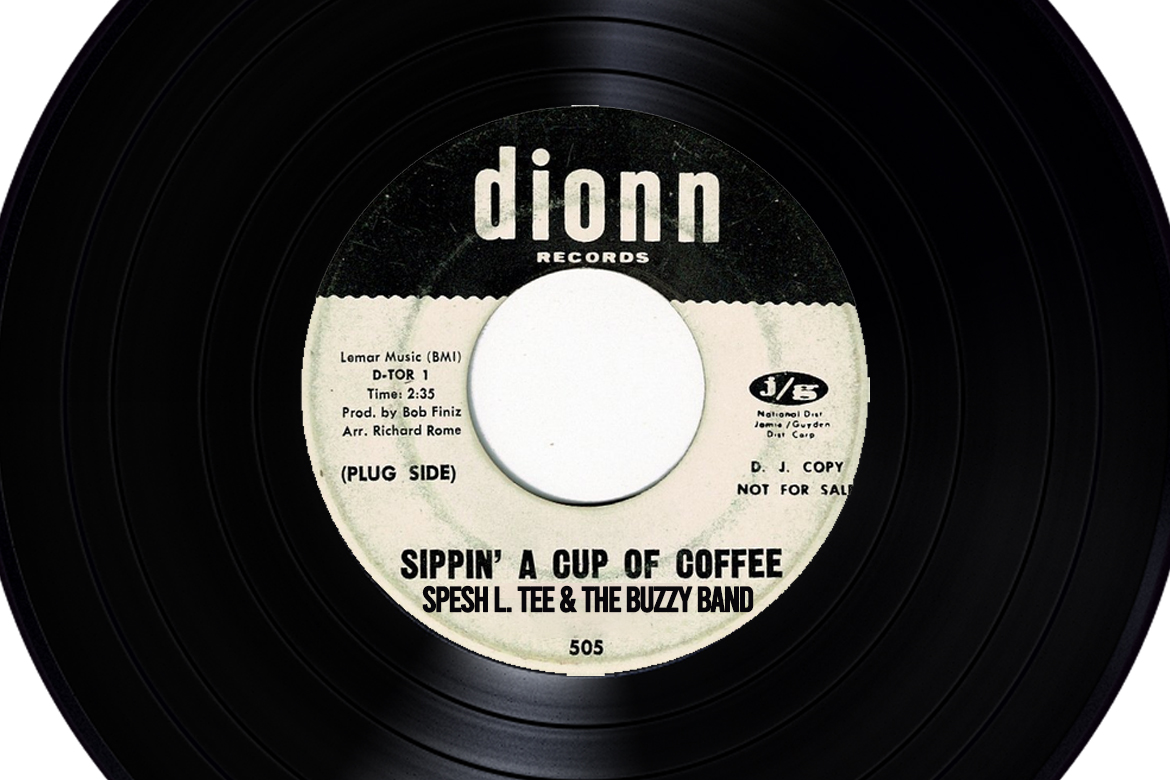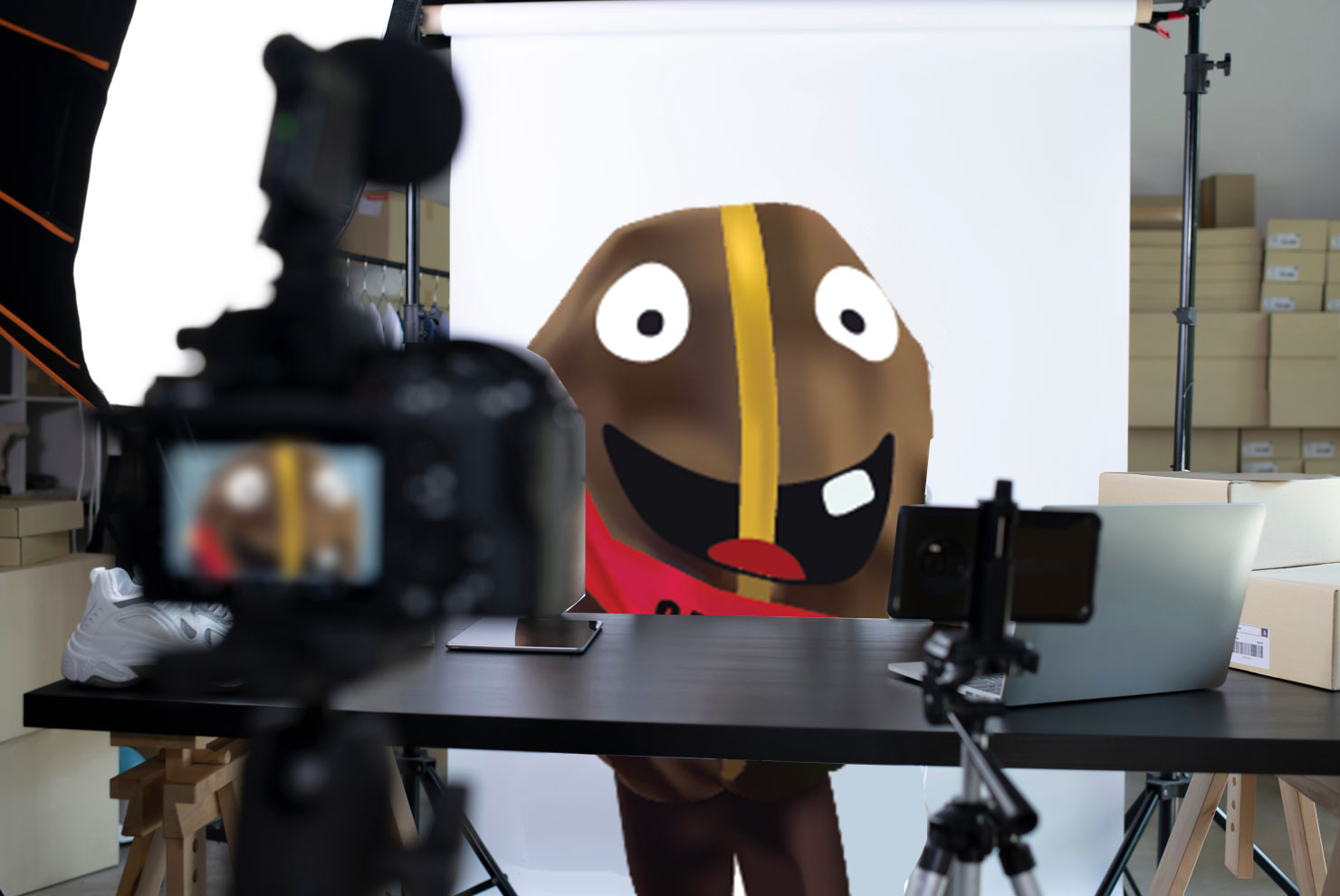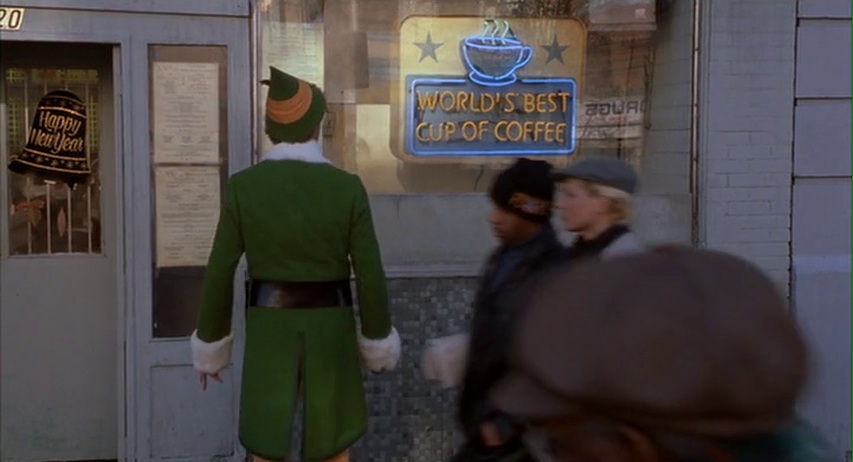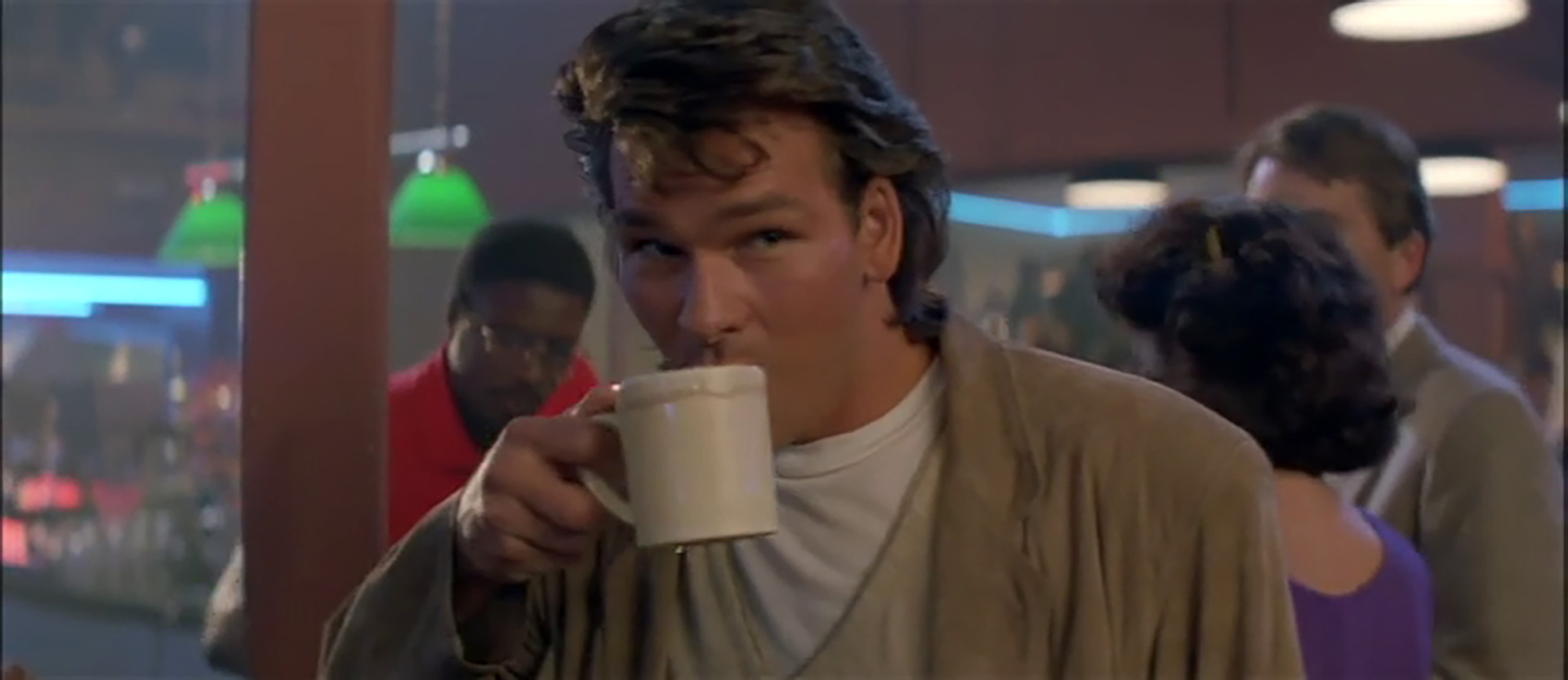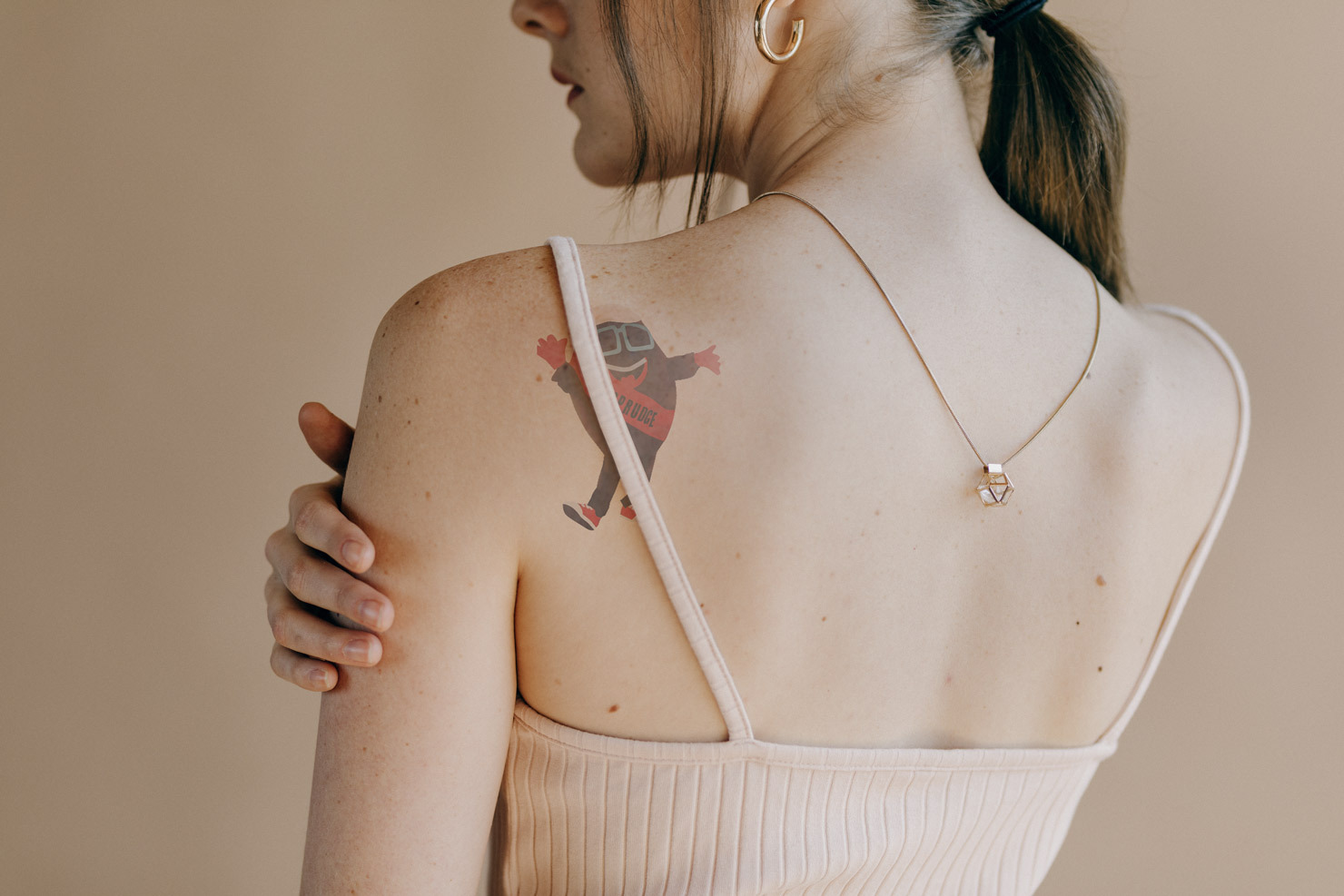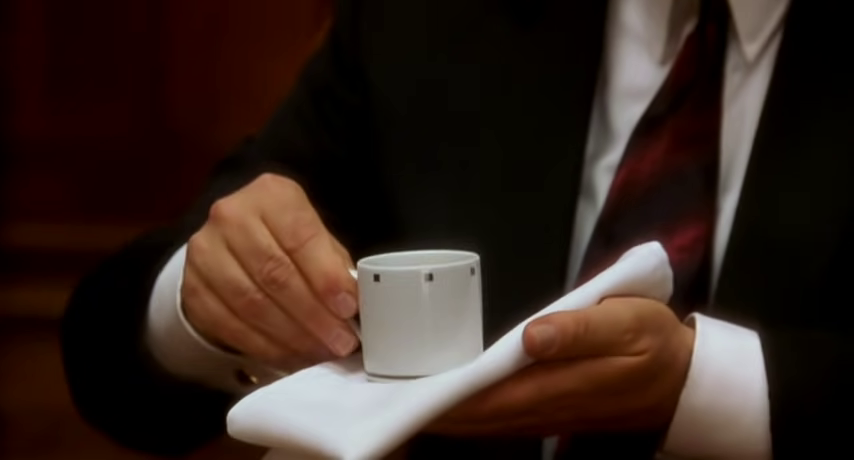In December 2013, Sprudge.com traveled to Kenya with six champion baristas as part of the Cafe Imports Origin Trip. We visited coffee exporters, millers, cuppers, and farmers in Nairobi, Thika, and Nyeri. The prize trip also took champions to the Masaai Mara game reserve on the border of Tanzania, where baristas spent two nights on safari at the Governors’ Camp.
These champs earned their trip from Cafe Imports by winning regional barista competitions around the United States. They are: Devin Chapman (Verve Coffee Roasters), Lem Butler (Counter Culture Coffee), Eden-Marie Abramowicz (Intelligentsia Coffee), Charlie Habegger (Handsome Coffee Roasters), Sam Lewontin (Everyman Espresso), and Pete Licata (World Barista Champion / Parisi Coffee).
The Cafe Imports Origin Trip continues in 2014, sending regional, national, and world champion baristas on a once-in-a-lifetime journey to Ecuador. In the meantime, we caught up with the 2013 travelers to gather their reflections on an extraordinary trip to Kenya.
It’s been a few months since we all got home from Kenya – what’s one thing about the trip that you keep thinking about?
“That red soil.” – Devin Chapman
“Like the safari, the fact that we were present for the 50-year anniversary of Kenya’s independence was auspicious. We went for this crop that we love to work with and consume, and were fatefully denied a day of immersion in it to join the country in reflection/beers. We had no choice–the mills were closed! So we traveled to Kenya for coffee, and wound up spending more time than we were supposed to just truly being in Kenya with the drivers, the peasants, the farmers, the ex-pats, and the wild animals. Which was a great use of our time, in my opinion.” – Charlie Habegger
“There is not one specific thing that pops into my mind about the trip. It is always a rush of thoughts and experiences that usher in nostalgia when I think of Kenya. An experience like that was a once in a lifetime event. I could never duplicate it. The crew we had, the people we met and the things we saw, touched, smelled and tasted create this feeling of mystic satisfaction. Sounds a little eccentric, but that’s the best way I can explain it.” – Lem Butler
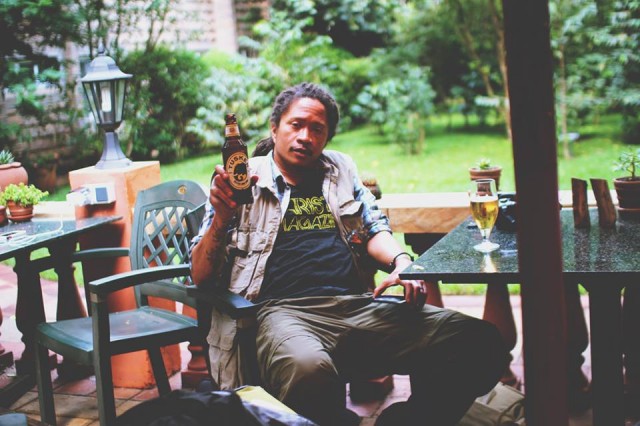
“There are so many things I took from the trip it is hard to limit myself to one! Everyday we had a crazy different experience from visiting the auction, visiting a dry mill, a wet mill, several different farms, meeting some local baristas and then the crazy safari the last few days, even just thinking about it now I am overwhelmed! The most amazing thing was how much emphasis was being put into education. I can not wait to try the first crops of the new variety we saw growing in the nursery, Batian, that is more resilient to CBD.” – Eden-Marie Abramowicz
“On Thursday, after returning to the hotel from the Ruarai Factory and Mr. Obobo’s farm, a group of us– me, Devin, Charlie, Eden, Lem and Reg, with Kevin chaperoning– drove into Nyeri. The first part of our visit was pretty much as you’d expect: we ambled through the middle of town in a tight knot, drinking it all in in high tourist form, having only those facile interactions with the people living and working there that our obvious foreignness allowed. We got back to our truck just ahead of a pretty nasty collection of black rainclouds, and rather than drive back, decided to take shelter in a bar whose wrought-iron balcony overlooked the street we’d parked on. The president was giving his address for the 50th anniversary of Kenya’s independence on the TV. Devin and Charlie immediately struck up a conversation with a couple of gentlemen who were there to celebrate turning 50 on that same anniversary. Sitting under a canvas awning on that balcony, drinking Tusker with that crew, listening to that address and watching the downpour wash the stuff of the street down the street, the raw fact of being in Kenya became something more than intellectual. I won’t forget that moment or that feeling in a hurry.” – Sam Lewontin
“I keep thinking about the auction system as well as the lions!” – Pete Licata
The trip to the auction house showed us the intricacies and complexity of the Kenyan coffee auction system. What was your take on the experience?
“Pretty drab overall. But seeing the auction gets you to understand how roundabout the coffee system in Kenya is –export wings are buying the coffees publicly from their own mills, which are filled by producers educated by their management services–but how admirably transparent it is. Regardless of how involved private companies are in subsidizing coffee production, the fact that coffee is bought and sold publicly, before export, and priced on quality alone is really something.” – Charlie Habegger
“The Auction was fantastic to watch. I always hear about the auction and to see it in action explained a lot about Kenyan government and how they regulate agriculture. I enjoyed seeing the room of coffees being auctioned. I never knew buyers could actually look at the coffee before they bid on it.” – Lem Butler
“When we first entered the auction house you could tell we were all intent on listening to our hosts and learning as much as possible. We were able to visit during an active auction and watch these folks juggling their guides and buying in real time. I always understood the concept of the different grades of coffee but it was easy to forget that even “specialty” coffee or the higher grade’s prices will fluctuate in correlation to the market price. Entering the sample room the baristas went wild rooming the rows of coffee. Handling the green we were able to see examples of all grades and qualities and ask questions as we went.” – Eden-Marie Abramowicz
“I had very mixed emotions about the auction house. I see it as a way to promote the farms and give a better value to the coffee in the end (which is part of why Kenyan coffees cost so much). This is also part of the problem for me. It seems to me that it is adding a level of markup on the coffee without necessarily adding anything in terms of quality or payment to the farmers themselves.” – Pete Licata
“Intricacy sums it up nicely. Seeing the functional complexity of that system, and realizing how vital that complexity is to the consistent quality of the Kenyan coffees that we prize so highly, put a lot of my basic understandings about coffee quality pretty sharply in perspective. Perhaps most important was the opportunity to see all the lower-grade coffee that’s sorted out and sold on other markets, so that the stellar lots that we’ve come to take for granted can exist.” – Sam Lewontin
“It’s cool to see a scenario where the quality and value of a coffee is decided by a large amount of professional cuppers. It really makes me think that Kenyan coffees are worth their value. However, it’s bitter/sweet to see so many additional links in the supply chain and what small take-away each link gets.” – Devin Chapman
When we visited the Chania Estate, we were amongst French Mission Bourbon trees, some over seventy years old. The Harries Family opened their home and fed us an unforgettable picnic by the river. How was this farm experience different than others?
“I haven’t been to Brazil so this was the most “American” looking coffee agriculture I’ve seen. By that I mean perfect rows of trees, no shade, and car paths dug between sections. It was very tame, very flat, very calm. Mr. Harries and his family are colonialist legacy, so are historic themselves, along with their trees. It was interesting to meet the rural white folk of Kenya. And that afternoon in the rain by the river was beautiful.
I had a shot of Chania Estate in Chicago last week at Gaslight, out of the blue. I always refrain from unsolicited sharing of what I know about coffees on other peoples’ menus, as I did here…but still, it was still really, really cool for me to drink that coffee, knowing the man who grew it, the men who milled and exported it, the guys who imported it, and that my friends had picked it out and were roasting it in Logan Square.” – Charlie Habegger
“I have visited several farms before, but never saw coffee blossoms first hand. It was wonderful standing amongst seventy-year-old trees smelling blossoms. The lunch by the river elevated the experience and added to the feeling of being guests amongst the coffee pros. Humbling! I also took a walk along the river before lunch for a little self-reflection.” – Lem Butler
“This was my first time to a coffee farm, and what a farm to be my first. It was huge and outrageously beautiful. The Harries family welcomed us to take pictures everywhere we went. When we were loading up into the trucks to navigate from the drying beds to the trees I jumped at the opportunity to ride with Boyce Harris. Riding with the windows down through the rows of tree, some of which were more then three times older then myself, my world came full circle. This is why I do what I do.
A reoccurring theme: the second the trucks stopped the baristas came pouring out and instantly got lost amongst the rows of trees. It was great to hear Boyce talk about advancements he and his team we making as well as family traditions that they were preserving. I also tried my first ripe cherry fresh off of a tree that day….it was great!” – Eden-Marie Abramowicz
“This was a farm that was quite pristine and well established. You could see that it was a combination of traditional methods and new techniques that were being embraced by the farmers and requested by our hosts, Café Imports.” – Pete Licata
“Boyce’s knowledge and experience, and the whole Haries family’s hospitality, made that visit pretty incredibly memorable. There’s also a sense of history to the Chania estate, of continuity and connection with the work and the day-to-day lives of people in that place down the years. It’s a feeling that I usually find only in the well-worn spaces in and around very old buildings, or on very old streets in very old cities, but standing among those bourbon trees, it was unmistakable.” – Sam Lewontin
“It was interesting to see how deep old-culture colonialism is embedded in Kenyan coffee culture, and this was a shining example of that.” – Devin Chapman
Our visit to the Ruarai Wet Mill took us to the farm of Mr. Obobo – this was very different than the Chania Estate. Any thoughts on the visit?
“I won the Southeast region with a Kenyan coffee, and when I explained that coffee to the judges, I imagined the farms looking like Mr. Obobo’s farm: small, red soil and beautiful! It was an incredible feeling to stand on his farm, listen about the history of his farm and hold the red soil in my hands. The Obobo family is very beautiful and I felt truly fortunate to meet them.” – Lem Butler
“Mr. Obobo graciously brought us to his family home and let us ask him questions as we explored. It was an important experience as the majority of Kenya’s coffee comes from small holders such as Mr. Obobo. The most intriguing things to me were the organization of different crops and amazing time tables they have for pruning and harvesting. Mr. Obobo acts as a representative for the cooperative going through educational courses and bringing back knowledge and new practices for farmers in the area.” – Eden-Marie Abramowicz
“This was a visit that made it very apparent the disparity between the farmers. Mr. Obobo was very passionate about his trees, though in our discussions he became so emotional about his situation. He has been working hard to improve yields and quality of his coffee, and the coffee is ultimately selling at a better price, yet his income has not changed. This is one of the issues that became clear to me: even though we are paying more for the coffee, the small farmers in the large cooperatives are still living difficult lives for almost no income.” – Pete Licata
“My strongest impression of that visit came from a conversation with Mr. Obobo. We spent the preceding days (quite rightly) exploring and celebrating work being done to improve consistency, quality, yield and income for small-holders across Kenya. Mr. Obobo thanked us for visiting, and stressed how important it was for us to see and understand the work happening on farms like his, but he also urged us to keep in mind that with all the improvements we’d witnessed, it was still a struggle for him to support his family in the way that they deserved. ‘Remember us,’ he said.” – Sam Lewontin
“This was a more familiar type of visit that made me think about who does the “work” in the coffee supply chain and who gets the money? Mr. Obobo seemed a bit disappointed in his take-away despite the fact that his coffee is some of the best in the world and his trees seem to be more productive than ever.” – Devin Chapman
We cupped coffees of all grades at the Highland Coffee dry mill. Any memorable coffees from that cupping?
“The cupping procedure itself was the most memorable thing. I’ve been testing our cupping recipe at Handsome to develop a routine that extracts coffee as responsibly and consistently as possible, and I would never do what they do in Kenya: saturate the grounds first, break violently, and then top off the bowls with under-temp water. It’s a totally unproven way to brew coffee accurately. One sample at Highland had a pair of bowls that were dramatically different strengths because one was actually smaller than the other. It’s scary how much fate can rest on a single extraction. But that’s cupping–it is what it is and you have to roll with it. And good coffee is always good, relatively speaking, on tables prepared consistently. Also I loved the spittoons.” – Charlie Habegger
“The Peaberry was my favorite on the table. I can still taste the fruity acidity and wonderful balance that coffee had!” – Lem Butler
“Ernest and the folks at the Highland Coffee dry mill set up a large cupping for all of us to enjoy. After several passes we all went through and talked about our favorites, and it was fun to see how calibrated we were. Great coffee is great coffee and undeniable all over the world. We had another lineup of coffees of each grade. It was very educational to make several passes and see the characteristics of each grade side by side.” – Eden-Marie Abramowicz
“The lower grades were great to cup. I have tasted defects many times now, but to have the entire stratification of one lot of coffee on the table gave a great perspective into how and why not every part of a harvest can be the best.” – Pete Licata
“A few, for sure! I’m pretty sure that Cafe Imports bought all of the stand-outs from that table; I’m looking forward to seeing which roasters they end up with, come this summer!” – Sam Lewontin
“Not so much memorable coffees, but the experience of tasting all the screen separations was the most interesting aspect of the Highland cupping.” – Devin Chapman
What was it like traveling with the other baristas?
“A lot like working with other great baristas: border collie-like focus one minute, and hysterics the next. There’s a special bond between specialists/workaholics that kind of frees you from needing to understand each other, because even though our affiliations are different, our process is so deeply in common. As a result, we could take that tie and build easily around it with the little wonders of travel, good arguments, mancala, and watching lions have sex.” – Charlie Habegger
“We had a colorful team of rockstar baristas and rockstar sponsors. We all meshed really well. As I said before, I couldn’t duplicate this trip! We were like a perfect signature beverage: amazing synergy!” – Lem Butler
“I was curious to see what it would be like traveling through a country with a troop of 11 men. I have to say, in addition to being some of the most educated people in our industry they are absolutely some of the nicest! We had too much fun picking each others brains about our respective shops and cities. We met such wonderful people in all facets of the Kenyan coffee industry and you truly could tell every person on that trip was there to learn and enjoy every moment. I will never forget the shared plates of ostrich, the cold Tuskers, the intense games of mancala and the nighttime swims.” – Eden-Marie Abramowicz
“It was fantastic to travel and talk with all of the other baristas who I usually only get to talk to briefly backstage at trade shows and competitions. Everyone was really fun and I feel like we all got to know each other so much better. Certainly a trip to remember!” – Pete Licata
“I’d be hard pressed to pick a better crew to travel with. The strength and closeness of our community has always been a huge part of my love for this industry; bringing together such a wonderful group of coffee professionals, with such a broad range of backgrounds, approaches and perspectives, brought that into really sharp focus.” – Sam Lewontin
“Traveling with baristas is always a treat. It seems like trips like this are deeply appreciated by baristas since we hardly ever get to go on vacation (and especially not with other baristas.) So carrying with us an overwhelming sense of gratitude for the opportunity plus being able to see so many things that we have talked about so much (coffee cherries, processing factories, etc) leads to a general feeling of wonder and amazement and appreciation of our industry. So rad.” – Devin Chapman
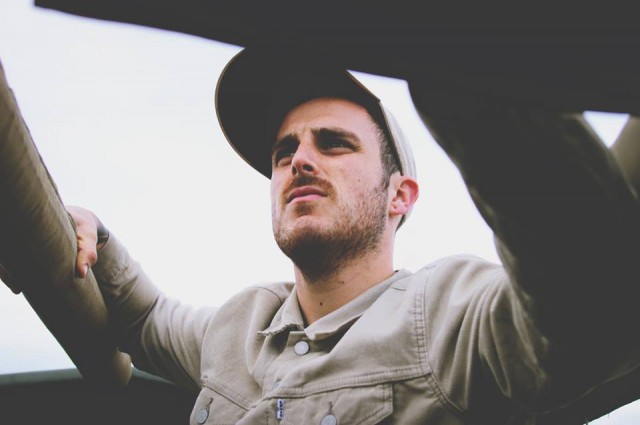
Did you ever think you’d be on safari at Governor’s Camp?
“I recommend safari to everyone, as someone who never cared whether or not I ever did it, because the Serengeti is one big high school quad, only one million times more majestic. I have had a personal life-long worship of the hippopotamus, and I got to know them as the goons they really are. That, and watching so many other animals up close was a huge privilege and a wellspring of many awesome moments.” – Charlie Habegger
“Before December, I never knew Governor’s Camp existed. As a kid I always wanted to go on safari in Africa. Safari always seemed like an unattainable goal. Who knew!?!” – Lem Butler
“Being on Safari was one of those bucket list items you never fathom actually being able to experience. Sleeping at night hearing a hippo bellowing 5 feet away on the other side of the canvas is something that haunts my dreams in a wonderful way. Some of the most beautiful moments I will always remember would be when all the coffee folk where so enthralled by the sky, their surroundings, and these crazy amazing animals, that we would be riding in silence trying to absorb it all.” – Eden-Marie Abramowicz
“To be honest I had never even heard of the Governor’s Camp before, let alone thought I would be on safari! It sure sounded fancy when they told us though. That was a really outrageous part of the trip for me. I’m pretty sure I will remember that safari all my life.” – Pete Licata
“Not in a million years. Seeing all of the requisite lions and zebras and giraffes up close was obviously an incredible experience, but a lot of the lasting impact of that end of the trip comes from feelings that are a little harder to articulate. There’s something of being at sea to it: driving out into a vast, rolling landscape, featureless enough that single objects on the horizon take on outsized fidelity and meaning. There’s something wonderfully humbling about the certain knowledge that a jeep is all that stands between you and being the absolute bottom of the food chain.” – Sam Lewontin
“No way. What a great opportunity. Life-changing and interesting and memorable. I will never forget it.” – Devin Chapman
Any other take-aways or thoughts on the trip?
“I jumped with the Masai!” – Lem Butler
“The people of Kenya blew my mind with how welcoming and fun-loving they were. The gentlemen who took the time to drive and help us around the country let us ask our never ending questions about every topic from pop culture to weather patterns. We were there during Kenya’s 50th anniversary of independence. Being able to talk to people during this remarkable holiday and read the local newspapers was unreal in itself. I am so grateful to Cafe Imports to hosting us for this jam packed trip of insane experiences.” – Eden-Marie Abramowicz
“Kenya is a beautiful country. We all know the coffee can be excellent, but I think we can also learn from their coffee model. There are positives and negatives to just about any production method out there, so why don’t we try to encourage the good stuff and try influencing the negatives toward bigger and better things in the future. We are all a part of the same industry and we should embrace the whole picture.” – Pete Licata
“A huge part of the value of the trip was wrapped up in intangibles. I learned about a ton of things that I’d never known or even considered, for sure. More important than that, though, was having so many of what had been purely intellectual understandings made concrete and visceral.” – Sam Lewontin
“Kenyan methodologies provide such a thought-provoking take on defining and promoting quality production. I was amazed how high expectations were across the board. This type of culture could do wonders in other parts of the coffee growing world.” – Devin Chapman
Read more coverage at our Cafe Imports Origin Trip archives.




